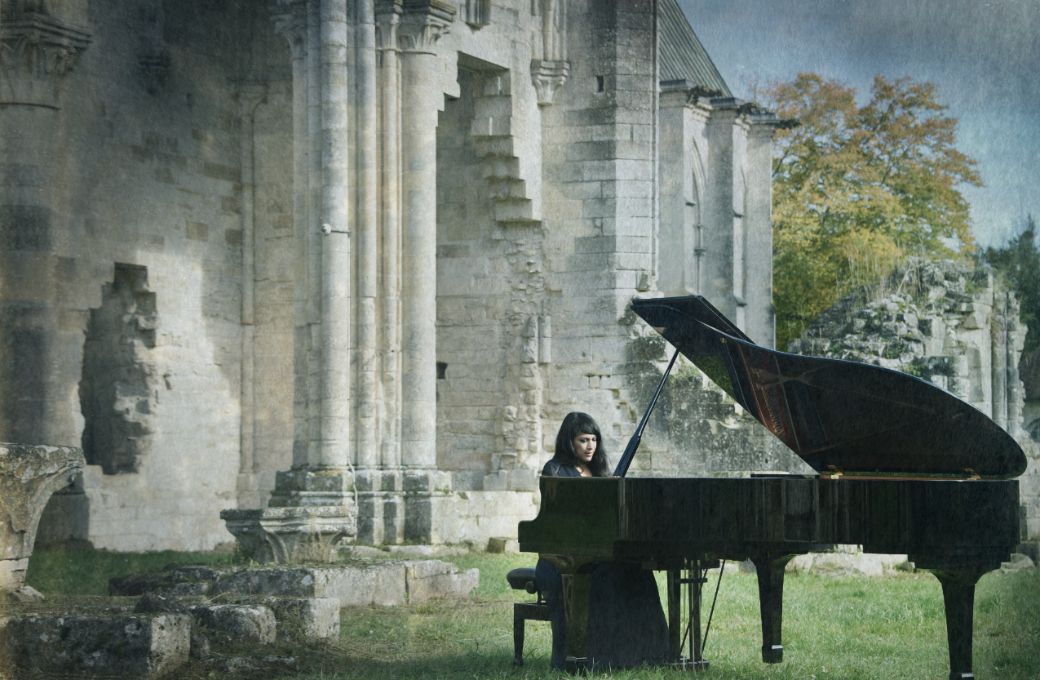Concert programming is often mundane: witness the overture-concerto-symphony formula often encountered. No such charge could be levelled at pianist Shani Diluka's Sheffield recital in which she invited us to accompany her on a journey towards transcendence, a journey which traced not just the intimate overlapping of Bach’s music with that of 20th-century American Minimalists, but also the ties that link the man-made to the natural, the earth-bound to the cosmic. Her guides – short texts by Patti Smith, Jack Kerouac and Albert Camus – directed our focus always outwards and upwards, and if not everything worked (a breakneck Solfeggietto by CPE Bach, for instance) almost everything did.

Of course, one should also acknowledge the sceptic’s view. This was a concert for lovers of the arpeggio and ostinato patterns, and the opening ‘movement’ of her recital (the whole thing consisted of 23 pieces grouped into four larger sections, with individual pieces segueing one into the next within each section) may have made one fear the obsessive worst. But this was a concert making both familiar and surprising connections. Early on Philip Glass’ Étude no. 2 led directly into Bach’s C major Prelude from Book 1 of The Well-Tempered Klavier, pointing us back towards the origin of Glass’ love for the arpeggio. Later, rather more startlingly, we went from Bach’s F minor Prelude from the same collection straight into Bill Evans’ arrangement of Danny Boy, linked by the same rising four-note figure. Elsewhere, one heard processional poise joined across centuries, Petri’s arrangement of Bach’s Sheep May Safely Graze leading persuasively into Glass’ Mad Rush.
If the concert had an abiding message, it was that we should feel the pulse: the hypnotic pulse of so much music built on recurring rhythmic and melodic cells, but also, as Diluka herself put it, the pulsing beat of the world itself, felt in all living, animate things as they aspire towards transcendence. If that all felt a bit ‘New Age’, Wordsworth meets 1960s counterculture, the pieces she marshalled into her argument compelled. Cage’s Dream felt mesmerically still, its hushed circling lines set against something more mechanical and urban in Meredith Monk’s Rail Road before the two worlds embraced in Moondog’s manic Barn Dance.
The concert’s title, referencing the American Minimalists, only told part of the story. There was space in Diluka’s vision of the world for reflective jazz – not just Bill Evans but four pieces by Keith Jarrett, including his nostalgic take on Gershwin’s I Loves You, Porgy and his tender arrangement of Brodzsky’s Be My Love. And also for the mixing of folk and ethnic voices – witness Jarrett’s richly contrapuntal arrangement of Olcott’s My Wild Irish Rose and his quietly reflective handling of Shenandoah, which Diluka rooted firmly in Native American culture.
Yet another way of looking at this fascinatingly interwoven concert would be as an homage to the art of the arranger. To the examples mentioned, one should add pieces by Bach arranged by Siloti, Cortot and Kempff. Centuries earlier there was Bach himself, arranging the slow movement of Marcello’s Oboe Concerto, a movement played by Diluka with a serenity which allowed the melody to sing joyfully, before she played her own arrangement of the slow movement of Glass’ Tyrol Concerto, leaving Bach himself to have the last word. If his C major Prelude near the start of the concert promised something pure and innocent, the C minor Prelude which ended it showed us how far we had come in absorbing the tempestuous into Diluka’s unifying vision of Bach and his 20th-century American admirers.


